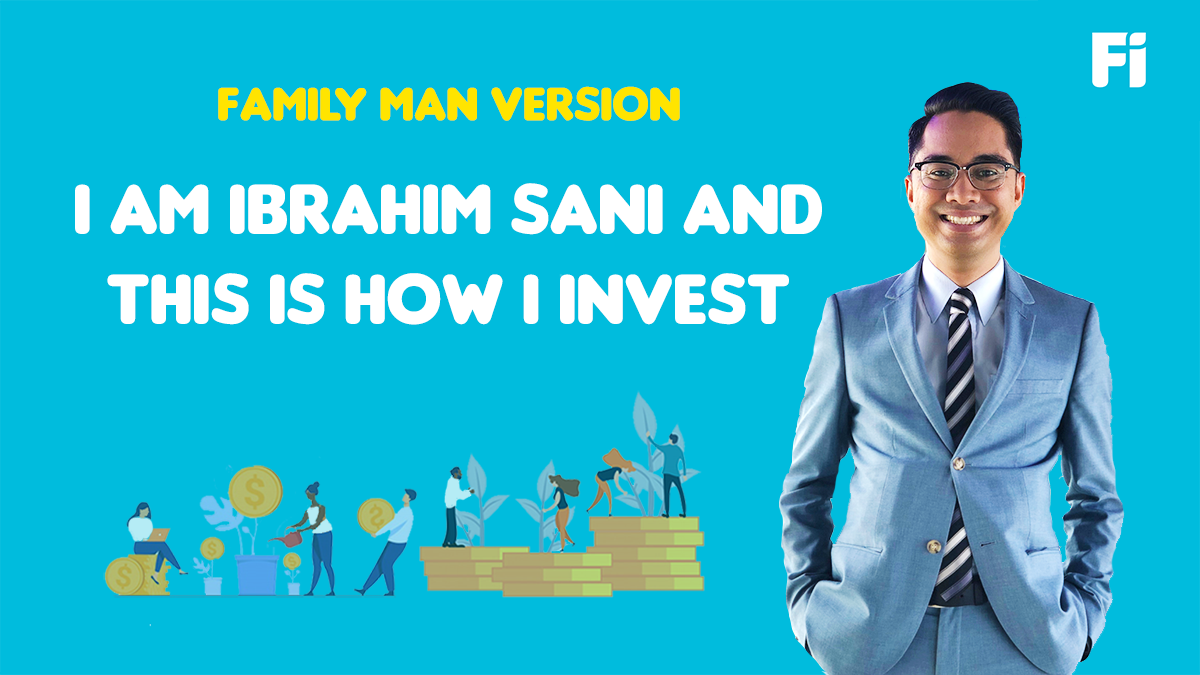
I am Ibrahim Sani, I am...
The Executive Producer and Lead Business Editor of Astro AWANI, Malaysia’s largest news network by viewership and reach. Previously, I was with the Morning Run team of BFM 89.9. I started my career at EONCAP Islamic Bank, then Hong Leong Investment Bank, and later CIMB Investment Bank.1. What is your best investment and worst investment?
My best investment was a fluke! Upon joining CIMB in 2010, I bought some CIMB shares when it was around RM3.00. In 2013, I decided to sell it all at about RM8.00 – the highest share price CIMB will ever hit, to date. CIMB share price has been hovering around RM3.50 for most of 2020. That’s an ROI of around 120% in just three years, or 40% per year!
Worst investments are my cars. I just don’t see the ROI on buying a car, and yet I still buy them. For example, the car I’m using now is a 2018 Toyota Vios. Car loan is RM12,000/year, service is RM2,000/year, fuel is RM RM2,500/year (About RM50/week), road tax is RM1,500/year. I’m excluding all the toll charges.
Adding it up, I spend roughly RM18,000/year or RM1,500/month on owning and using a car. And I have two of them. I can’t imagine spending RM1,500 a month either on Grab or SoCar or similar? But I still buy the cars. It’s an addiction I have, lol!
2. What was your first-ever investment (and how did that go)?
First ever investment is my ASB. It generates an average of 7% return p.a. But the returns are tapering off since 2018. I’d expect 2020 to be closer to prevailing FD rates. All in all, it went (and still is going) well.
3. Your investment no-nos (why not and what happened)
I never invest in something that I do not understand. For example, I don’t understand property. What makes a property highly sought after? What makes it able to be sold at the desired seller’s price? Office property or residential, it all seems like there’s something wrong with the market. It seems so arbitrary to me, hahaha.
I do however understand SPACs, warrants, derivatives, and REITs. I understand compounding interest. And I understand robo-advisors. To me, these instruments are rather straight-forward, empirical, and most importantly, more liquid than buying property. Until today, I have never bought a house, and probably never will.
4. Your context (basically who are you as a person, what are you doing that lead you to your financial/investment goals, what are you investing for)
The investment goal here are two pronged:
- to ensure I have enough during retirement (30 years retirement, beginning at 60 years), and
- to ensure my children are taken care of if either my spouse or me are no longer around.
Also, no matter what happens, COVID-19 included, I would set aside 30% of my salary to continue to invest in ASB, robo-advisors, Tabung Haji, and equities. Rubber gloves saw a rally of 1,600% this year, I don’t know if this is sustainable but I am in for the ride.
Diversifying investments outside of Malaysia is crucial, my robo investments do this for me, but they mostly invest in US tech firms. My next investment frontier and wish list is to enter the Chinese / Hong Kong market to invest. Perhaps soon?
5. Ibrahim’s investment philosophy and approach
Throughout my time being both a banker and a broadcast presenter, I have learnt a few common themes when conversing with countless CEOs, startup founders, and government officials. And that is, cash is king. No matter what I say and do, I will put liquidity of investments as paramount. That is why I don’t tie my money up in houses, cars, boats, or anything that needs time to liquidate. If an investment requires me more than five days to get the cash into my wallet, chances are, I walk away from it. Plain and simple.
Follow Ibrahim-
Twitter, Instagram
About “This is How I Invest” - As Fi Life’s motto is “Buy Term (Term Life Insurance) & Invest the Rest”, this series features how different personalities “Invest the Rest.”
Subscribe to our newsletter for more content on Personal Finance and Investment.
